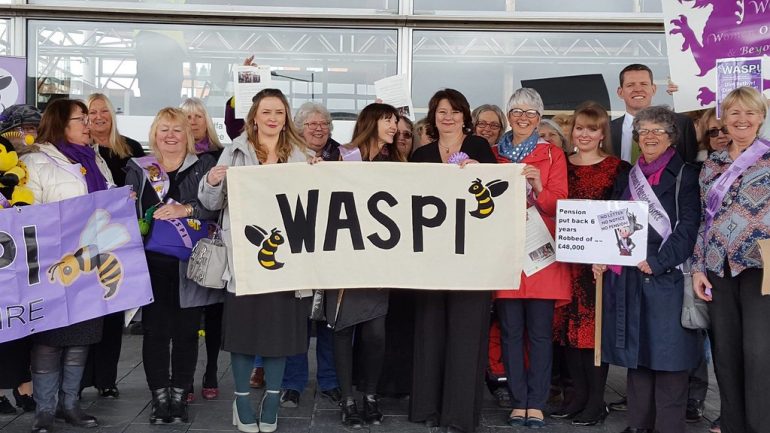Thousands feel aggrieved at their losses after changes to state pension age
WOMEN in South Wales hit by a change to the state pension age feel aggrieved after a suggestion of up to £3,000 in compensation fell well short of their expectations.
“These are crumbs compared to what we should be getting. People my age have saved the government £46,000 each,” said Karen Gilgar from Cardiff.
Yesterday’s report by the Parliamentary and Health Service Ombudsman found that thousands of women may have been affected by the Department of Work and Pensions’ failure to adequately inform them that the state pension age had changed.
The 1995 Pensions Act and subsequent legislation raised that age for women born on or after April 6, 1950. Women’s state pension age rose from 60 to 65 between 2010 and 2020 to match that of men.
The Ombudsman decided that thousands, many of whom now belong to Women Against State Pension Inequality, had been left in the dark regarding these plans. It recommended that up to £3,000 compensation be given.
“It’s total disrespect,” said Ms Gilgar. “We were disregarded. In 1995 we weren’t thought of as important enough to give us the polite regard to notify us. It’s in line with the same kind of treatment we’ve always been given.”
The government’s failure to communicate the changes left the women feeling as if the rug had been pulled from underneath them. Thousands had to rethink their retirement plans at short notice.
“I have never received notification of any changes in my retirement age,” said Julie Harding, from Ebbw Vale.
In a now infamous interview on American TV, former Chancellor George Osborne bragged about the “enormous savings” made by increasing the women’s pension age that “dwarf(ed) almost anything else” his government did.
Many WASPI women believe that savings made off the back of pension reforms have encouraged the government to “drag their heels” over the issue, and is why none of the women affected have received any compensation. They had asked for £10,000, not the £3,000 offered.
“They have already saved vast amounts of money by delaying compensation as so many people have died,” said Ms Gilgar.
Since 2015, over 270,000 WASPI women have died, saving an estimated £4 billion for the Treasury.
Many fear that compensation will never come. To date, the Department of Work and Pensions has not acknowledged its failings nor put things right for those women affected.
PHSO chief executive Rebecca Hilsenrath said: “DWP has clearly indicated that it will refuse to comply. This is unacceptable. The department must do the right thing and it must be held to account for failure to do so.”
“It was a pitiable compensation suggestion which the DWP have said they will not pay. Our only hope now is to go through the courts,” said Elaine Griffiths of the Southeast Wales WASPI campaign group.
“Don’t hold your breath – there will never be compensation. It will be like the sub-postmasters/mistresses,” added Ann Burns, also of Southeast Wales WASPI.
Yesterday Delyth Jewell, Plaid Cymru MS for South East Wales wrote to Mel Stride, the Secretary of State for Work and Pensions on behalf of the 1950s women of Wales.
“It is a scandal that the UK Government has dragged its feet for so long that women have died before getting the money they are owed,” said the letter.
“Any proposal to pay these women a sum that’s less than what they’re owed would go against the Equality Act 2010 and would flout international law.”
“It is direct discrimination, and these women deserve certainty and to be given hope that they will finally see justice,” she said.
Ms Jewell’s words echo the grievance felt by thousands.
“Women born in the 1950s rightly feel aggrieved and have suffered significant financial hardship as well as often being compelled to remain in work,” said Joan Price, from Cardiff.
“To offer a very small compensation is demeaning to the 1950s women who continue to contribute to society,” she said.
Lawyer Dr Jocelynne Scutt, who wrote a legal report on the plight of the women said: “1950s women are faced with a government that ignores its legal responsibility and lacks compassion. Many have died, many are living in poverty, and all have suffered and continue to suffer the wrong of injustice. Action is needed to right this grievous wrong.”



